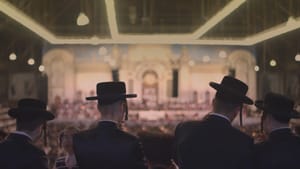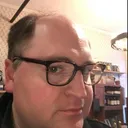Stay in the Loop
BSR publishes on a weekly schedule, with an email newsletter every Wednesday and Thursday morning. There’s no paywall, and subscribing is always free.
Spring at the movies
Three films to watch from the PFS Springfest

In mid-April, the Philadelphia Film Society held its second annual PFF Springfest, a weekend-long spring analogue to the October Philadelphia Film Festival. This year's event featured 12 films over three days, all at the Philadelphia Film Center, with a slate mostly featuring films that had debuted at Sundance, South by Southwest, and other film festivals earlier this year.
Here’s a look at three of the best films on view.
City of Joel
The fest's best documentary is the story of a very specific cultural and real-estate dispute that echoes instances of racism and ethnic strife from throughout American history.
City of Joel, directed by Jesse Sweet, is about the tensions between the residents of Kiryas Joel, a Satmar Hasidic community in upstate New York, and their more secular neighbors in the surrounding town of Monroe. At issue is a move by the Hasidic group to annex parts of the town, which is strongly opposed by the other residents.
City of Joel has close access to both sides of the dispute and treats it with uncommon fairness to both positions.
Most secular Americans probably wouldn't react well to a fundamentalist religious sect essentially annexing their town, especially one that enforces gender separation and modest dress codes for women.
But on the other hand, the people of Monroe use several of the same arguments long used by opponents of desegregation, busing, and other forms of racial integration. Adding to the irony? We hear repeatedly that the Hasids and many of their secular neighbors came to the area in the first place because they were fleeing New York City, likely due to some degree of white flight.
We also see the juxtaposition of a woman who left behind Kiryas Joel to live a secular life in Brooklyn with a still-Hasidic woman who gives a full-throated (and somewhat chilling) defense of the role of women in the ultra-Orthodox lifestyle.
My only quibble is that one person onscreen says that the Hasidic sect had sought to defund the area's public schools, with yeshivas coming in to buy the buildings. The film doesn't offer facts to back this up or explain how such a thing would work.

The Art of Self-Defense
Among other accomplishments, Riley Stearns's The Art of Self-Defense ends the 30-year reign of Cobra Kai, from The Karate Kid, as the most evil and sadistic karate dojo in the history of cinema.
Beyond that, the film is a fascinating, funny, and very timely satire of masculinity, and the ridiculous lengths some are willing to go to appear to be a "real man."
Jesse Eisenberg stars in the film as Casey, a meek 35-year-old bachelor in an unnamed city who's attacked one night in a random mugging and resolves to get tougher. This leads him to said dojo, under the direction of his sensei (Alessandro Nivola).
Eisenberg gives one of his better recent turns, but the film belongs to Nivola as a sensei and masculinity guru who's both chilling and sort of hilarious.
I would call the film a satire of the current age of Jordan Peterson, so-called men’s rights activism, and other modern forms of laughable, performative masculinity. But judging by the computers, stereos, and other gadgetry, the film appears to be set around 1994. And that's not the only thing that's off kilter—characters speak in strange, bizarre cadences, in a way that recalls Yorgos Lanthimos films like The Lobster and The Killing of a Sacred Deer.
Official Secrets
Official Secrets would make a fine double feature with 2009’s In the Loop, another British film about the combination of malevolence and cowardice that led to the start of the Iraq War.
Gavin Hood's film is about Katharine Gun, an analyst in Britain's equivalent of the NSA. Weeks before the invasion of Iraq in 2003, Gun leaked a memo showing that the US was looking to dig up dirt on countries on the UN Security Council to get them to vote for the Iraq War resolution. For this, she was prosecuted by the British government and her Muslim husband was threatened with deportation.
Gun's leak failed to stop the war; the UN resolution never actually passed, and a US-led coalition launched the war without the UN. The episode isn't much remembered—I thought I knew the Iraq War story pretty well, but I admit I don't remember this happening at all.
It's a strong top-to-bottom cast, with Keira Knightley in the lead role, Matt Smith and Matthew Goode as reporters, and Ralph Fiennes as a lawyer who defends Gun. Rhys Ifans plays Ed Vulliamy, a loud, swashbuckling English journalist who recalls the late Christopher Hitchens—that is, if Hitchens had opposed the Iraq War.
Official Secrets was the closing-night film at the festival, and attending it meant skipping the season premiere of Game of Thrones. However, those who made it out were treated to a supporting role by that show's Lord Varys (Conleth Hill) as a profane newspaper editor.
What, When, Where
The Art of Self-Defense. Directed by Riley Stearns. Opens in wide release June 21, 2019.
City of Joel. Directed by Jesse Sweet. No release date yet announced.
Official Secrets. Directed by Gavin Hood. Opens in wide release August 23, 2019.
Philadelphia Film Festival Springfest. April 12-14, 2019, at the Philadelphia Film Center, 1412 Chestnut Street, Philadelphia. (267) 239-2941 or filmadelphia.org/festival.
The Philadelphia Film Center is a wheelchair-accessible venue. For more information on accessibility features, visit online.
Sign up for our newsletter
All of the week's new articles, all in one place. Sign up for the free weekly BSR newsletters, and don't miss a conversation.

 Stephen Silver
Stephen Silver